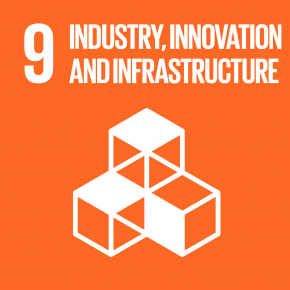|
Title |
Professor |
|
Profile |
1 Apr 2015 Research Administrator of University of the Ryukyus |
|
|
|
TONOOKA Yuki
|
|
|
Current Affiliation Organization 【 display / non-display 】
-
Duty University of the Ryukyus Organization for Research Promotion Research Planning Office Professor
University 【 display / non-display 】
-
1993.04-1997.03
Tohoku University Faculty of Science Department of Biology Graduated
Graduate School 【 display / non-display 】
-
1997.04-2002.03
Tohoku University Graduate School, Division of Natural Science Institute of Biology Doctor's Course (second term) Completed
Academic degree 【 display / non-display 】
-
Tohoku University - Doctor (Science)
External Career 【 display / non-display 】
-
2013.04-2015.03
Yamaguchi University
-
2015.04-2018.03
University of the Ryukyus
-
2018.04-2020.09
University of the Ryukyus
-
2020.10
University of the Ryukyus
Affiliated academic organizations 【 display / non-display 】
-
2003.06-Now
Japan Society for Intellectual Production
Published Papers 【 display / non-display 】
-
A preface for the feature articles “Academy-industry collaboration and university research administrators in national regional universities"
TONOOKA Yuki
Journal of the Japan Society for Intellectual Production ( Japan Society for Intellectual Production ) 18 ( 2 ) 2_1 - 2_6 2022.06
Type of publication: Research paper (scientific journal)
-
Access this article
-
Search related information
-
-
A feasibility study on essential oil extraction from vetiver planted as green belts
SUWA Ryuichi, OOMIJA Kodai, NISHIHAR Takashi, TAKAHASHI Masahiro, SUMI Hidekazu, TONOOKA Yuki, KAWANO Emiko
Japan Journal of Aromatherapy ( Aroma Environment Association of Japan ) 21 ( 3 ) 19 - 23 2020.06
Type of publication: Research paper (scientific journal)
-
Access this article
-
Search related information
-
-
Shimokawa A.
Acta Horticulturae ( Acta Horticulturae ) 1271 ( 1271 ) 85 - 92 2020.02 [ Peer Review Accepted ]
Type of publication: Research paper (international conference proceedings)
-
Access this article
-
-
Development of Higher Yield and High Quality Mango Production System based on Internet of Things
Shiroma Yasushi, Afuso Hitoshi, Suwa Ryuichi, Kinjo Atsushi, Tonooka Yuki, Kaga Takeshi, Nagayama Itaru, Tamaki Shiro, Maharjan Gauri
IEEJ Transactions on Industry Applications ( The Institute of Electrical Engineers of Japan ) 139 ( 2 ) 166 - 173 2019.02
Type of publication: Research paper (scientific journal)
-
Access this article
-
Search related information
-
-
Development of higher yield and high-quality mango production system based on Internet of Things
Shiroma Y.
Electronics and Communications in Japan ( Electronics and Communications in Japan ) 102 ( 6 ) 33 - 41 2019.02 [ Peer Review Accepted ]
Type of publication: Research paper (other science council materials etc.)
-
Access this article
-
Other Papers 【 display / non-display 】
-
Development of facility horticulture system aimed at early harvesting and quality improvement of mango
玉城史朗, 金城篤史, 平良英三, 城間康, 殿岡裕樹
電気学会次世代産業システム研究会資料 IIS-17 ( 102-103.105-112 ) 2017
Social Activity 【 display / non-display 】
-
Cabinet Office, Government of Japan
2023.04-2024.03

-
Japan Science and Technology Agency
2023.04-2024.03



